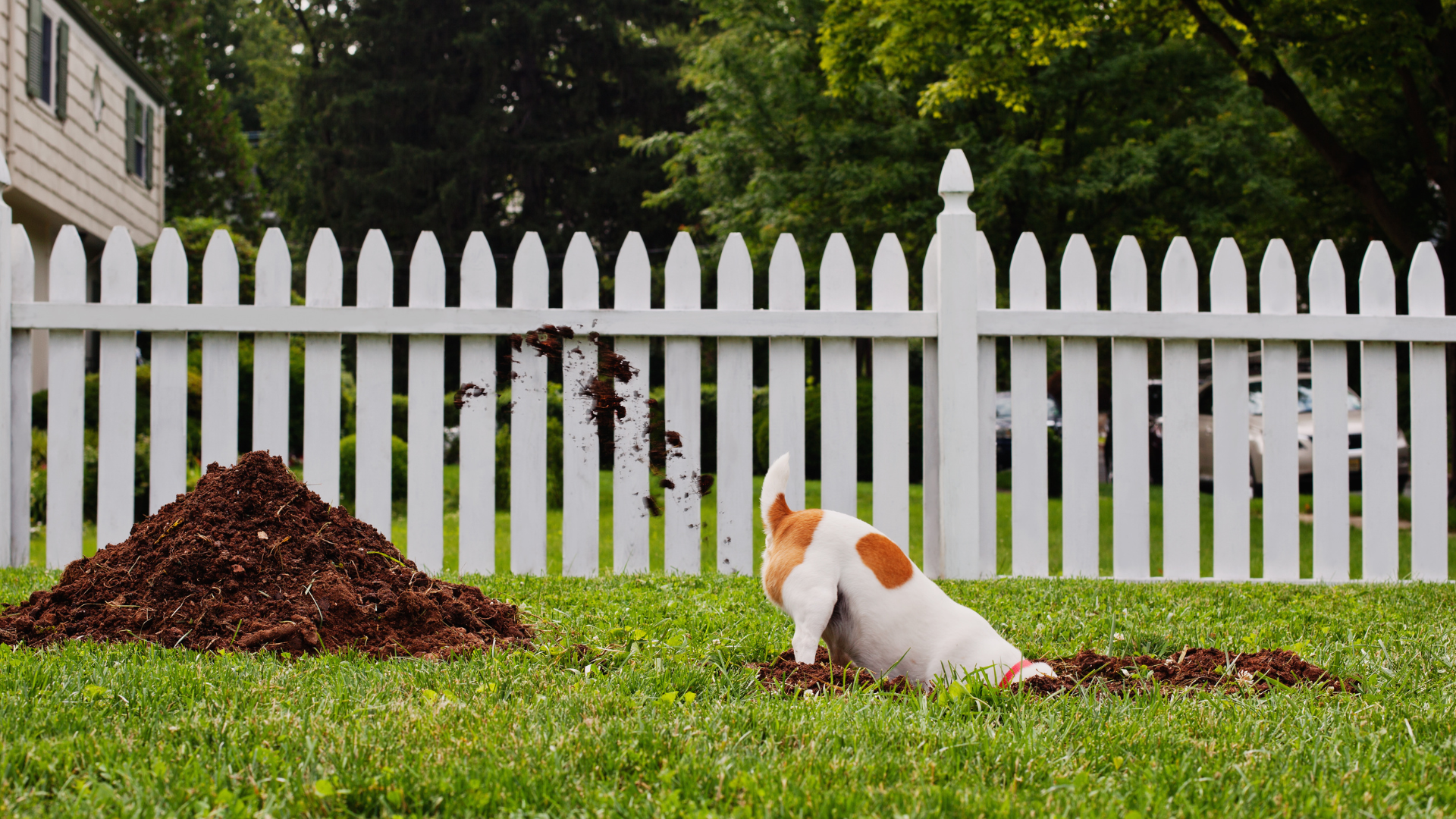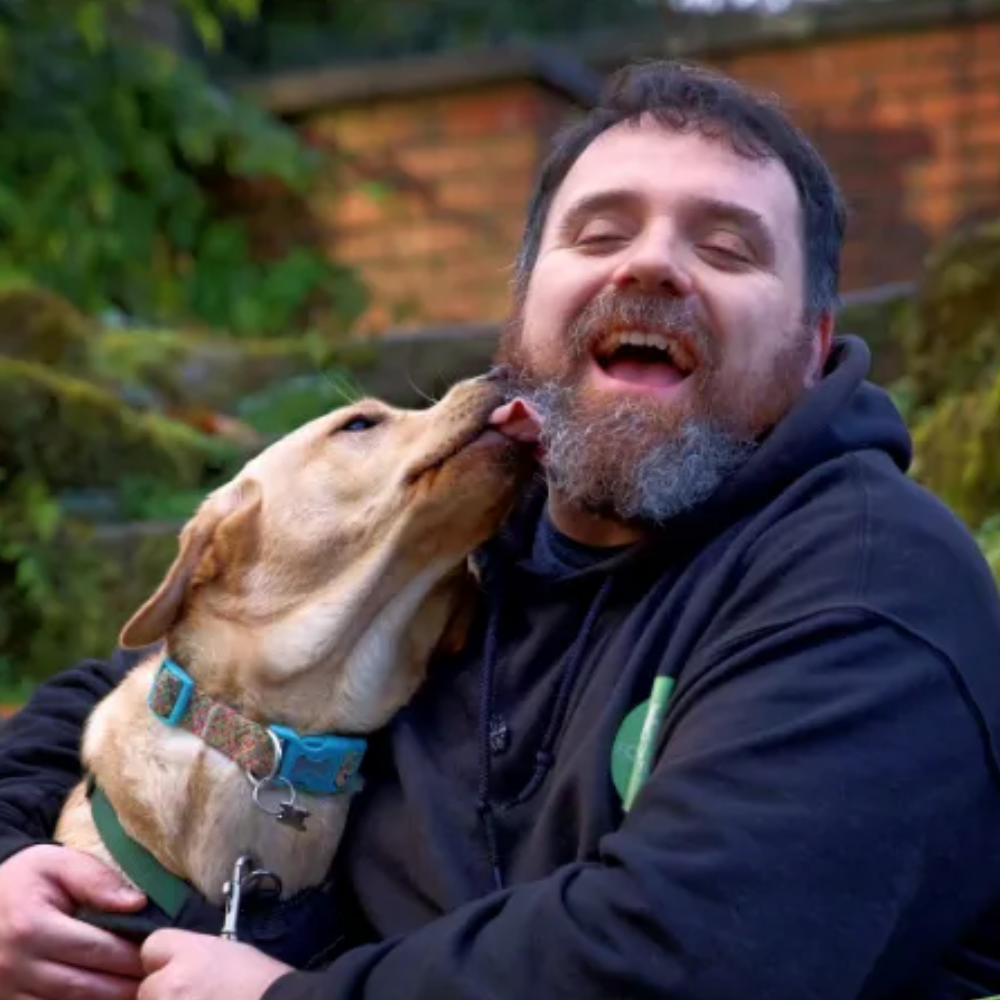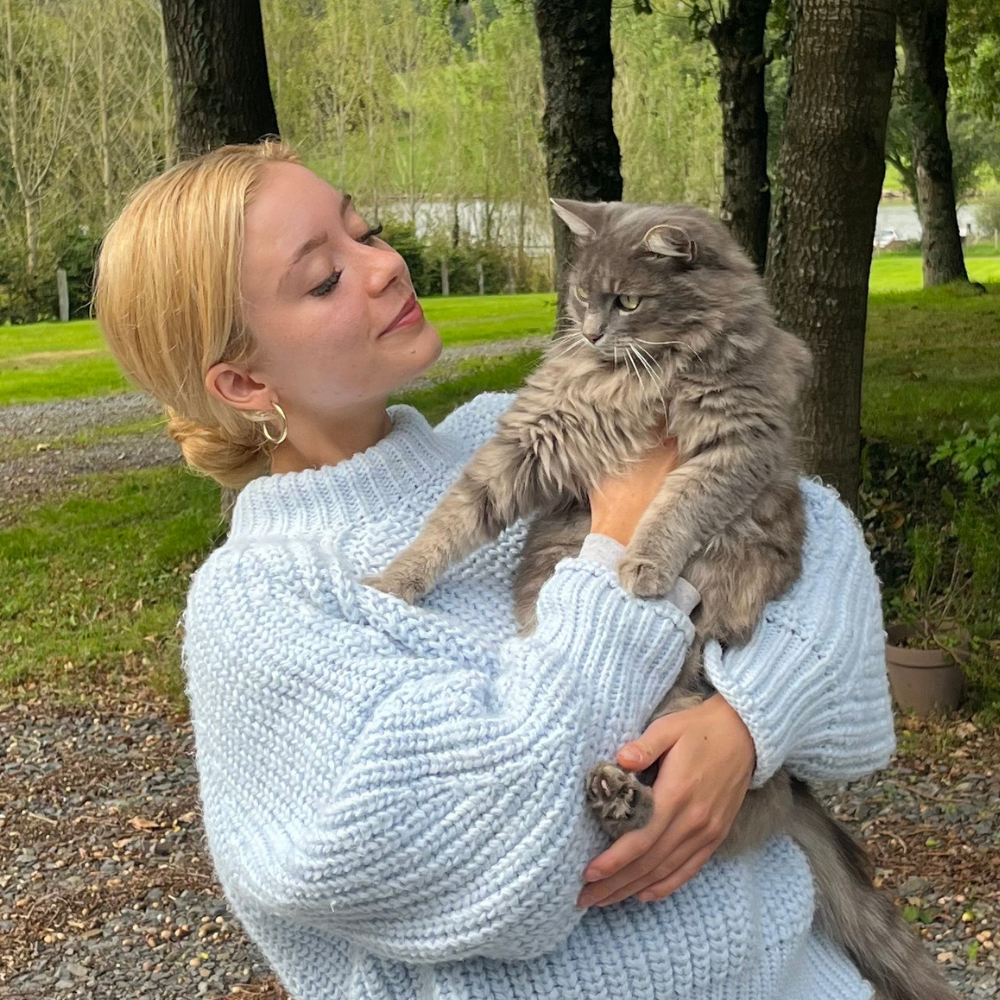How to stop a dog digging, according to an expert trainer
Here's how to stop a dog digging and what this behavior means.

If you keep finding holes in your backyard, then you might be wondering how to stop a dog from digging. We're not surprised if you're feeling frustrated by this behavior — it causes a huge mess in your outdoor space which costs time and money to fix.
As well as being inconvenient for you, it could also be dangerous for your pup if they're trying to escape and you live near a busy road. Some dogs might try to dig their way out under fences or gates, so it's worth keeping an eye on these areas in particular.
There are lots of reasons why your dog might be digging which Gareth Dickinson, an expert trainer at Forever Home Dog Training, has explained below.
He's given his top tips for preventing this behavior, like keeping them entertained using the best dog toys and going for regular walks. He's also explained whether you should discipline a dog for it and which breeds do it the most.
How to stop a dog digging
Gareth says that you need to consider the following things:
- Why your dog is digging
- How long it's been going on
- What their breed is
Once you've got to the bottom of these questions, you'll have a better idea on how to handle it best.
Gareth says: "In order to overcome the dog digging, there needs to be appropriate outlets for the dog to take part in."
Get the best advice, tips and top tech for your beloved Pets
Make sure you're taking your dog on a variety of walks to ensure they're getting the physical and mental stimulation they need. Perhaps you could explore a new route, play a game of hide and seek or organize a doggy play date at the park. Not only will this keep them physically fit, but it will contribute toward good mental health and happiness. If you want some more ideas, we've written 12 ideas to help keep dog walks fun.
Gareth also recommends trying enrichment activities, like lick mats, Kongs, and puzzle games which are great for mental stimulation.
He adds adds: "If your dog is focusing on a particular area to dig at, you may want to consider blocking it off and redirecting the dog into another activity to reduce the fixation."

How to discipline a dog that’s digging
When you're unhappy with your dog's behavior, you should avoid using training methods that are harsh or aversive and use positive reinforcement for dogs instead.
Gareth says: "Harsh or aversive methods can increase the dog's desire to continue this behavior as we are drawing attention to it. We don't want to implement fear in the dog that could lead to redirected frustration."
Rather than disciplining your dog, you should redirect them with an item or activity that's high-value and rewarding, advises Gareth. You could use one of the best durable dog toys or if you have a little one, the best puppy toys. If you're stuck for activity ideas, here are eight fun games to play with dogs that are recommended by a behaviorist.
The Kong Classic is a brilliant boredom buster and will keep your dog occupied for hours. Fill it up with their favorite treats and they'll have loads of fun chewing them out, reducing the likelihood of destructive behavior like digging.
Why do dogs dig?
If you're wondering, 'Why is my dog digging?' you're not alone; this is a common question that pup parents ask Gareth all of the time. Here are some reasons he says your dog might be doing it:
1. They're exploring their surroundings
If you've recently brought home a new dog, then they might want to explore their surroundings and get to know the area a little bit better. Unfortunately, this might involve digging and is very common with puppies.
2. The sensation
Gareth says: "For some dogs, it could be that they have never experienced it before and the sensation on their paws and nose is simply overwhelming. This can sometimes happen with a rehomed or rescue dog."
3. Genetics
Genetics might also have a role in your dog's digging habits. Whilst there are lots of dogs who love to dig, working breeds have a tendency to do it more - especially labrador retrievers, golden retrievers, border collies, and German shepherds.
4. Frustration or overstimulation
Gareth says: "When a dog becomes frustrated or overstimulated and not given appropriate activities, this can result in the dog finding their own entertainment and begin digging." If this is the case, you could try playing these indoor games for dogs.
Found this helpful? You might also want to read: How to stop a dog chewing their bed and how to stop a dog pulling on the leash.

Gareth is a certified dog trainer who specializes in aggression, canine body language, reactivity, and scent work. He runs Forever Home Dog Training, which uses force-free and supportive methods. He is a former police officer and has a degree in politics and law.

Megan is a Staff Writer at PetsRadar, covering features, reviews, deals, and buying guides. She has a wealth of experience caring for animals, having grown up with dogs, cats, horses, guinea pigs, and more throughout her life. She studied BA Journalism at the University of Westminster, where she specialized in lifestyle journalism and was editor of Smoke Radio’s lifestyle website. Megan works alongside qualified vets and accredited trainers to ensure you get the best advice possible. She is passionate about finding accurate and helpful answers to your pet-related questions.
- Gareth DickinsonDog Trainer

